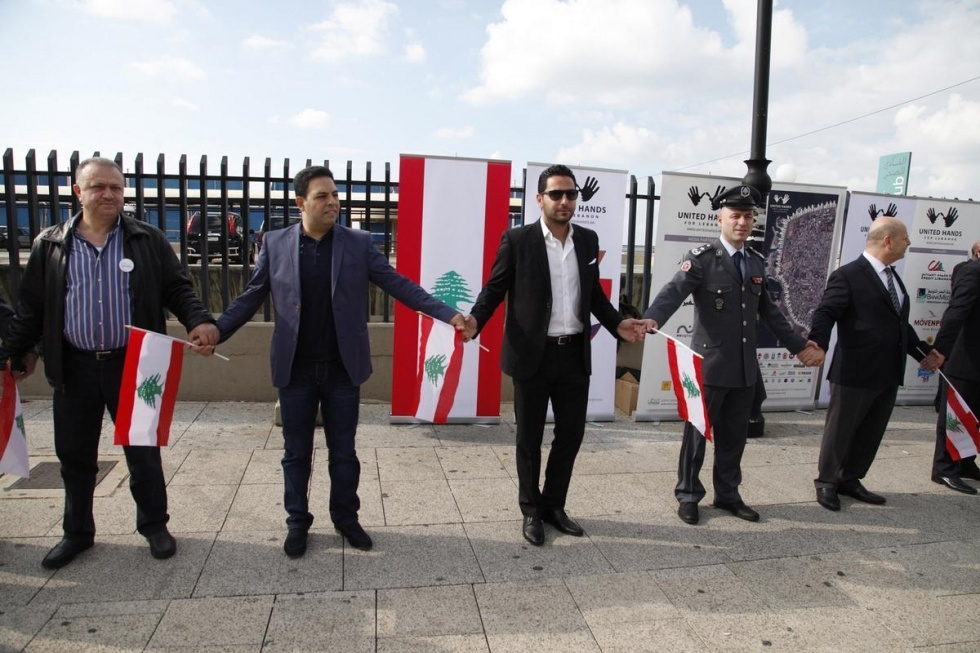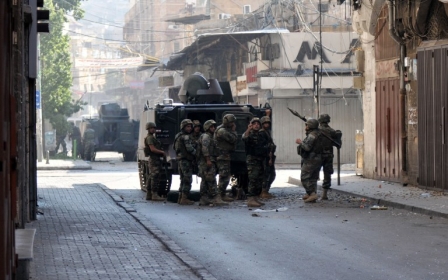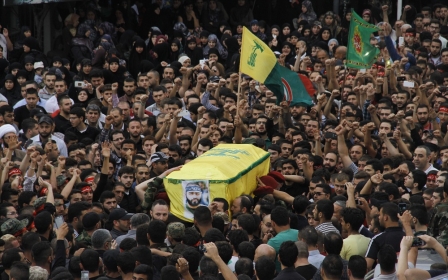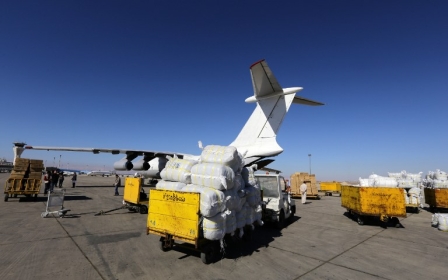Lebanon hits 200 day mark without a president

The 16th parliamentary session in Lebanon that took place on Wednesday has failed yet again to elect its president. Ever since former president Michel Suleiman’s term ended on 25 May 2014, the country has functioned without a head of state, amid increasing turmoil on its border with Syria, the Syrian refugee crisis, and bubbling sectarian tensions.
A two third majority, or 86 votes is needed for a candidate to win presidency. Only 56 out of the 128 members of parliament were present at the session, which was postponed to 7 January. The presidential vacancy has now reached 200 days.
In a country with 18 religious groups, Lebanon has devised a system to closely accommodate equal power-sharing among the main sects. The 1943 National Pact stipulates that the president must be a Maronite Christian, the prime minister a Sunni Muslim, and the parliament speaker a Shiite. The 1989 Taif Agreement signed in Saudi Arabia resulted in constitutional amendments, which specifies the role of presidency as a secondary position within a quasi-parliamentary system. That is, constitutional institutions can largely function in the absence of a president, whose powers are taken up by the Council of Ministers.
Christian rival candidates
Presidential power is not decisive, and his decisions can be overruled by a majority vote from parliamentarians. It is the prime minister who has total power in the executive branch, which is made up exclusively by the council of ministers. Christians within the government have complained of an imbalance of government posts, which the National Pact holding little value in terms of acting as a confessional democracy. If anything, the Pact is regarded as perpetuating sectarian politics, and even though there have been calls of a secularized government, there is little information on how to achieve that exactly.
Christian officials embarked on a boycott of the cabinet sessions, with the knowledge that the sessions cannot function without the presence of the required minimum number of constitutional seats, which is two thirds of all government ministers. Some have also boycotted parliament, where decision-making is rendered impossible if Christian delegates are absent from voting on laws and bills.
The two main candidates for president are old-time rivals 62 year old Samir Geagea of the March 14 alliance, which is led by the Saudi-backed Saad al-Hariri, and 81 year old Free Patriotic Movement leader General Michel Oun, of the March 8 alliance. The latter includes Iranian-backed Hezbollah. The men have been adversaries since Lebanon’s 1975-1990 civil war. Geagea was sentenced to death for being behind the killing of Prime Minister Rashid Karami in 1987, before he was completely pardoned in 2005. Both have failed to receive the two-third majority vote.
Anger and apathy
Habib Battah, a journalist and author of Beirut Report, told Middle East Eye that the public’s reaction to the presidency fiasco is not their primary concern at the moment, stemming largely from the fact that the public does not participate in electing the president.
“There have been more protests about the unelected parliament than the presidency,” he said. “The public is supposed to have the right to elect its members of parliament and for the second year running they have been robbed of their constitutional rights.”
Battah was referring to the parliamentary elections that were supposed to take place in June 2013, but were postponed to November 2014. To the public’s outrage, the parliament’s mandate was recently postponed again to 2017 in what many described as an unconstitutional and undemocratic act.
“Our parliamentarians have basically told us we don’t have the right be part of the political process because we can’t be trusted to make sound decisions under [present] circumstances. A lot of people are angry about that…it’s very troublesome,” Battah added. “It’s one of the ways in which people in Lebanon are becoming apathetic to politics when they are told that they can’t vote and they have no right to be part of the political process, without any justifications.”
The role of Syria
Although the presidential vacuum and the failure of the country’s politicians to agree upon a successor has not resulted in drastic although has largely to do with the complicated and divergent views of the Syrian conflict, with parties either supporting Bashar al-Assad, adopting a neutral stance, or supporting the rebels. Hezbollah’s active fighting alongside regime forces in Syria has stirred up unrest within the borders of Lebanon, with fighting spilling over to border towns such as Arsal.
Traditionally, regional powers have played a heavy role in Lebanon’s politics. According to writer and commentator Ghassan Rubeiz, the Syrian regime prior to descending into civil war was very influential.
“Without the pro-Syrian votes, no president could win the required two-third majority of the legislature,” he wrote.
Hezbollah as part of the March 8 alliance bloc has mainly boycotted cabinet sessions, and is in their best interest to elect a president that is on good terms with the Syrian regime.
Hezbollah’s current relationship with the Syrian regime can be gathered by looking at how loyalty to Assad came from a third of Lebanon’s population, mostly from the Shiite communities. It is safe to say their support results from their fear of a post-Assad rule that will persecute them as a religious minority. Lebanon’s Christians are split in their support or neutral stance, not because of any love for Assad but mainly because they do not want to witness an Islamist takeover.
Battah maintains that the Lebanese people have lost interest in the continuation of the former feuding warlords Geagea and Oun, pointing out that day to day life for the average citizen is not affected by lack of a president.
“People are locked out of the political process in Lebanon,” he said, referring to other pressing matters such as the influx of over one million Syrian refugees in the country and the rampant real estate development that is swallowing up heritage sites in Beirut.
“[The presidency] almost means nothing and is barely even talked about that much anymore.”
New MEE newsletter: Jerusalem Dispatch
Sign up to get the latest insights and analysis on Israel-Palestine, alongside Turkey Unpacked and other MEE newsletters
Middle East Eye delivers independent and unrivalled coverage and analysis of the Middle East, North Africa and beyond. To learn more about republishing this content and the associated fees, please fill out this form. More about MEE can be found here.




